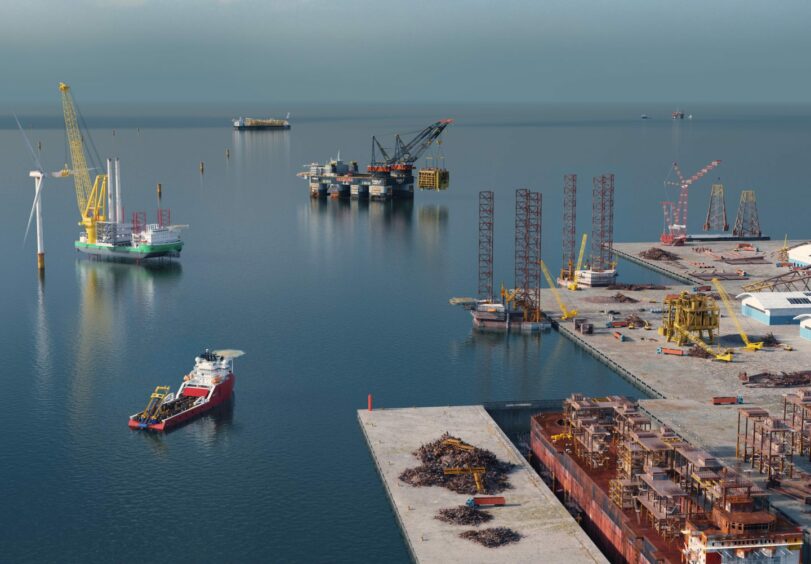
The number of assets in the North Sea that need to be decommissioned is on the rise. According to Shell around 470 installations will be decommissioned in the UK sector of the North Sea over the next 30-40 years.
Decommissioning costs are falling. In 2017, the UK’s North Sea Transition Authority (formerly the Oil and Gas Authority) estimated UK decommissioning costs would be around £60 billion and called for the industry to cut them by 35% to £39 billion by the end of 2022. By last summer, the estimated cost had fallen to £44.5 billion or by 25%.
Decommissioning will play a vital role in the future of the North Sea and is a key component in the energy transition. It will provide long-term opportunities for local supply chains. According to the North Sea Transition Authority, investment is expected to increase to a peak of £2.5 billion over the next 20 years and will contribute to up to 30% of the sector’s spend over the next four decades. Several ports and facilities are well advanced in their preparations for receiving decommissioned assets.
But the UK has a chequered history when it comes to maximising the opportunities delivered by the energy industry. And there is a concern that decommissioning might become yet another example of the UK missing out to its rivals in a highly lucrative market.
How can we ensure that when it comes to decommissioning, installations that have served in our waters for decades don’t go abroad to be dismantled? Put another way, how can the industry position the UK as the most attractive location for the decommissioning of assets?
A coordinated approach
Much good work is being done at a governmental and organisational level. However, this work is often carried out by bodies independently of each other. A unified approach to decommissioning, which recognises its importance in the energy transition and includes a wide range of supporting organisations, would encourage greater strategic clarity and operational efficiency overall.
A common understanding and recognition of the role of the UK’s ports in decommissioning will be critical to improving across-the-board clarity. One suggestion would be for the UK Government to identify and support certain ports as decommissioning centres of excellence for specific work scopes – for example, those that specialised in oil and gas assets, those that specialised in vessel recycling to support the circular economy through steel reuse, and those that specialised in floating offshore wind structures etc. This would give operators searching for a decommissioning provider a much clearer and easy picture of who does what and where so they can get the work that they require done effectively.
Conversely, government can have a role to play in making sure the UK supply chain is informed of upcoming decommissioning projects. This may include the introduction of regulation on mandatory decommissioning timelines for assets. This would give contractors a greater understanding or insight into the UK’s decommissioning project pipeline and help them plan their operations more accurately.
A more unified way of working between contractors on projects, so that every contractor involved was aware of each other’s roles and capabilities, would also improve service streamlining and deliver greater operational efficiencies.
Upselling the benefits
The maturity of the industry in the UK means the supply chain has developed unrivalled experience and expertise in decommissioning. This expertise in delivering projects in the most efficient manner is one of the reasons why decommissioning cost estimates have fallen so significantly from the 2017 benchmark.
However, focusing too much on a culture of driving down costs could act as a disincentive to supply chain companies from entering the market, particularly as other sectors such as offshore wind begin to appear more financially attractive with a growing sustainable supply of upcoming projects. Switching to other sectors could create a void in the UK’s decommissioning supply chain. This would be eagerly filled by international competitors with a resulting loss of revenue to the UK.
For the business ahead
The anticipated growth in decommissioning will increase demands for a wide range of support including early-stage project development services, regulatory support, risk analysis, technical advisory, hazardous materials and assurance solutions, all the way through to circular economy.
Recommended for you

 © Supplied by Bureau Veritas
© Supplied by Bureau Veritas